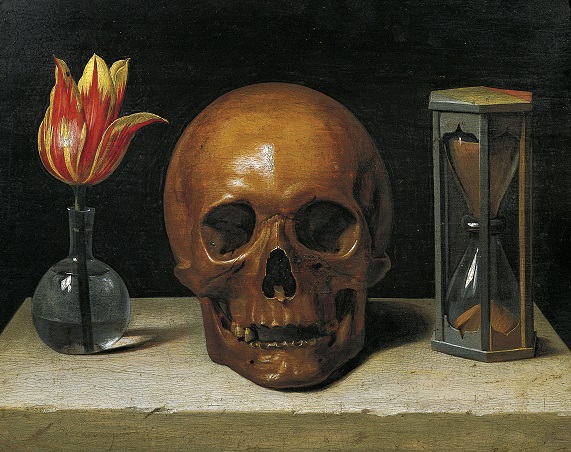Memento mori is Latin for “remember that you have to die” or “remembering we will die”. It is used in reference to the practice of reflecting upon our mortality as an ongoing method of reminding ourselves of how meaningless earthly possessions are, how transitory our time is in this mortal vale.
Far from being a negative, “remembering we will die” is an admonishment to live life fully, to make the most of each and every present moment, to cherish those we love, to invest our time wisely.
Closing Quotes:
“I shall pass this way but once; any good that I can do or any kindness I can show to any human being; let me do it now. Let me not defer nor neglect it, for I shall not pass this way again.” – Etienne de Grellet, Quaker Missionary
“Life is short, God’s way of encouraging a bit of focus.” – Robert Brault
Ozymandias
By Percy Bysshe Shelley
“I met a traveller from an antique land,
Who said— “Two vast and trunkless legs of stone
Stand in the desert. . . . Near them, on the sand,
Half sunk a shattered visage lies, whose frown,
And wrinkled lip, and sneer of cold command,
Tell that its sculptor well those passions read
Which yet survive, stamped on these lifeless things,
The hand that mocked them, and the heart that fed;
And on the pedestal, these words appear:
My name is Ozymandias, King of Kings;
Look on my Works, ye Mighty, and despair!
Nothing beside remains. Round the decay
Of that colossal Wreck, boundless and bare
The lone and level sands stretch far away.”
Wikipedia:
Memento mori (Latin: “remember that you have to die”)[2] is the medieval Latin Christian theory and practice of reflection on mortality, especially as a means of considering the vanity of earthly life and the transient nature of all earthly goods and pursuits. It is related to the ars moriendi (“The Art of Dying”) and related literature. Memento mori has been an important part of ascetic disciplines as a means of perfecting the character by cultivating detachment and other virtues, and by turning the attention towards the immortality of the soul and the afterlife.[3]
As always, I share what I most want/need to learn. – Nathan S. Collier



0 Comments